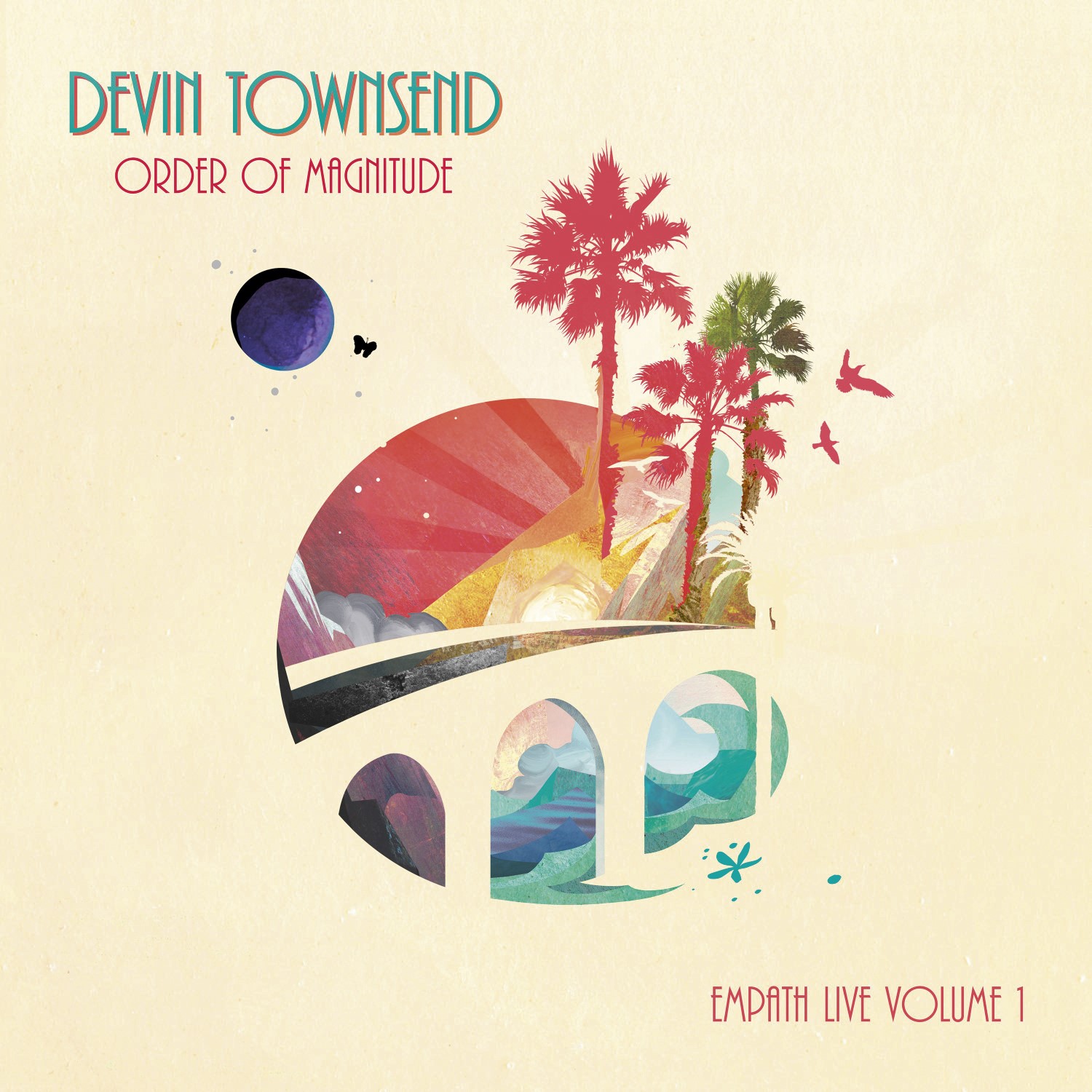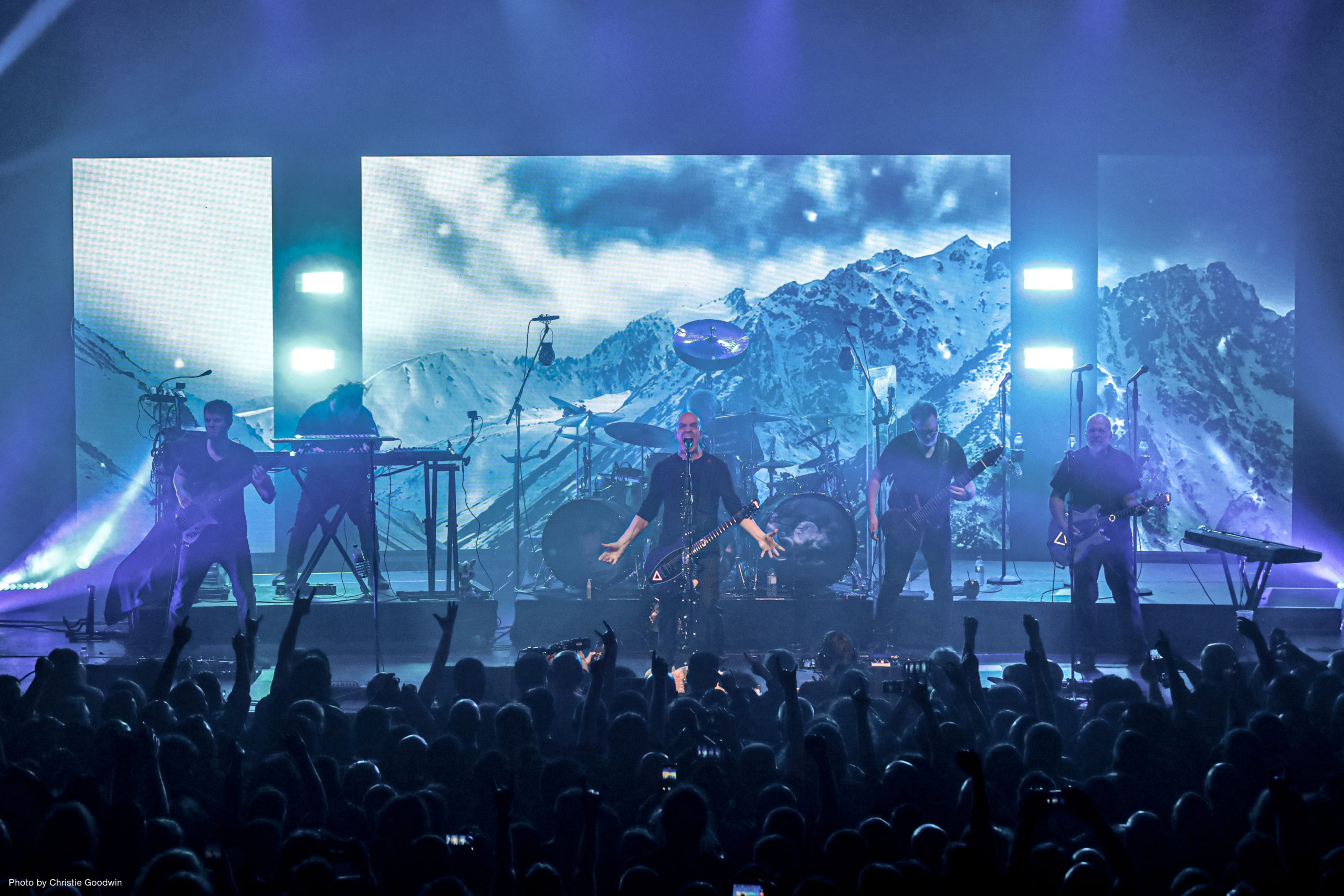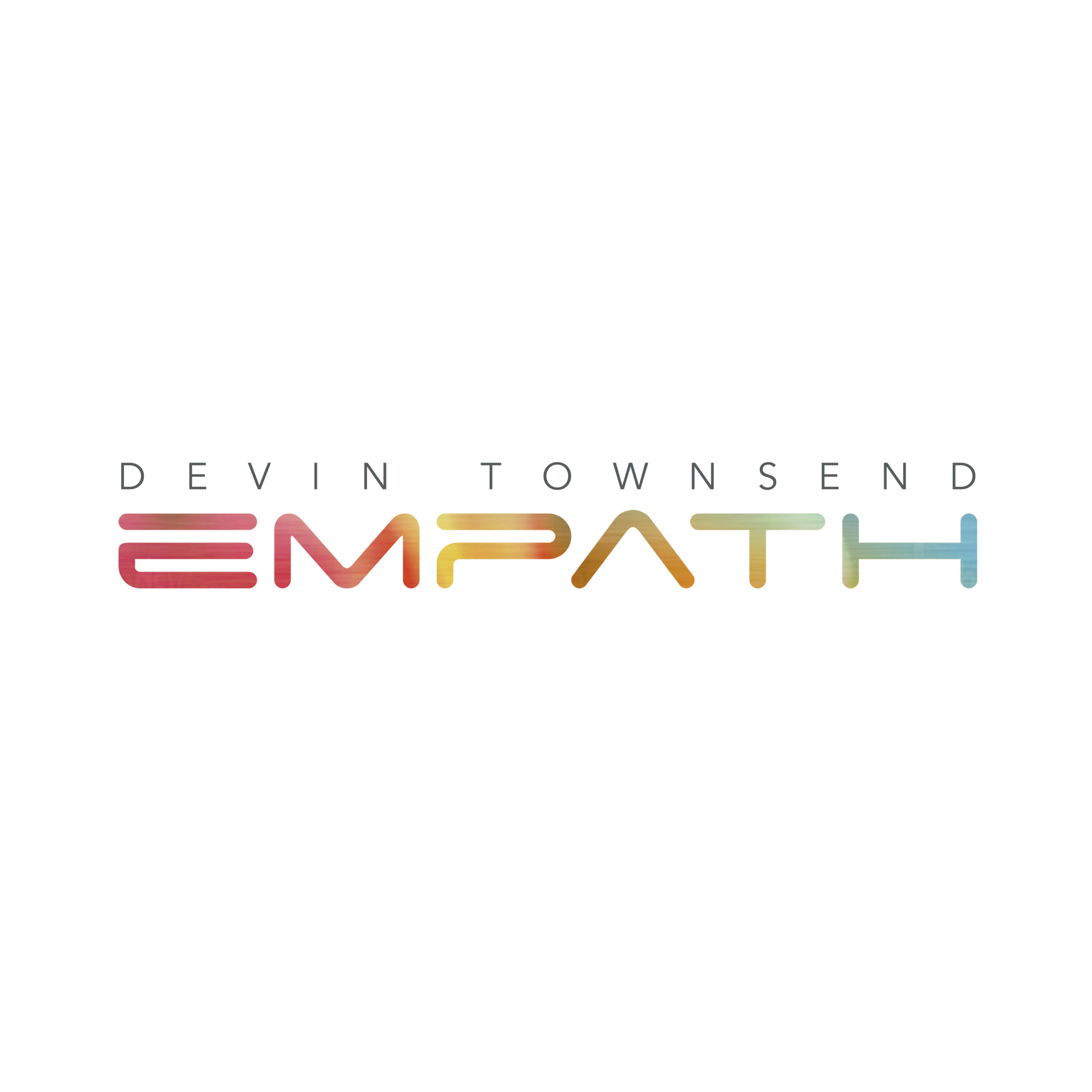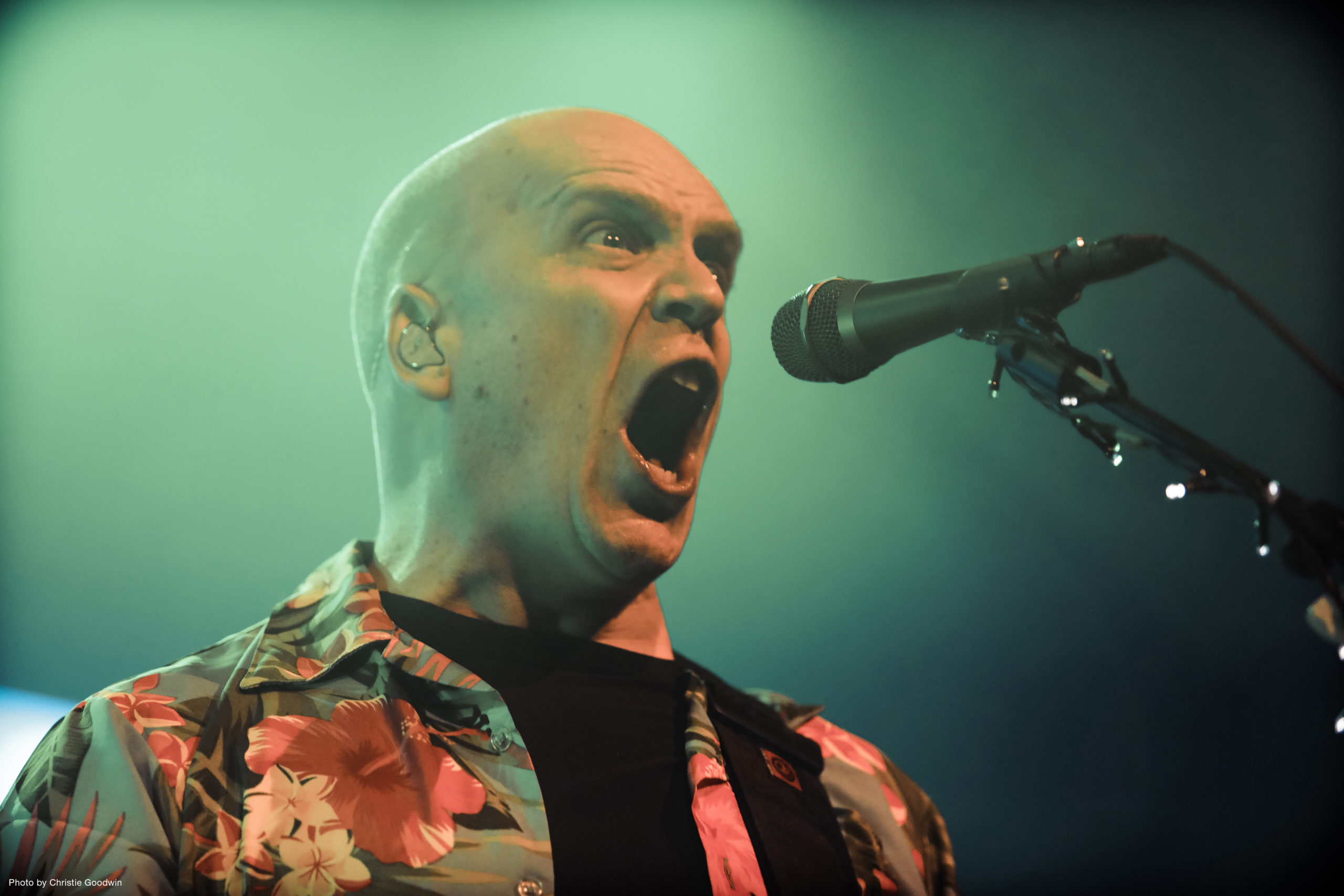Features
In Conversation with Devin Townsend: Lockdowns, Live Albums, and Orders of Magnitude [w/ Audio]

With a musical career that spans almost 30 years and a vast variety of genres, Devin Townsend’s creative output reaches much further than his well-established proficiency as a vocalist and guitarist. A musical mastermind whose multi-layered compositions are not merely intricate but also effortlessly listenable and injected with a healthy balance of emotion and humour, Devin’s prolific back catalogue has earned him a steadily rising fanbase along the way.
The backend of 2019 saw him embark upon a European and North American tour that not only afforded him the opportunity to showcase his latest progressive metal masterwork (the hugely ambitious Empath), but also provided him with the opportunity to assemble an entirely new live band for the tour. Devin, along with a live ensemble that included guitarists Mike Kenneally (ex-Frank Zappa) and Markus Reuter (Stick Men, The Crimson Projekct), drummer Morgen Agren (Kaipa, Mats and Morgan, Frank Zappa), bassist Nathan Navarro, keyboardist Diego Tejeida (Haken), guitarist/vocalist Ché Aimee Dorval (known to fans for her collaborative work on Casualties of Cool), plus vocalists Samantha and Anne Preis, and Arabella Packford, worked together to come up with a live show that would allow him to fully realize his vision for the music. Part of said vision included the removal of a backing track altogether and therefore fully relying on the talent and musicianship of all involved.
“The idea of playing at all right now seems so alien that it’s hard to recall!,” jokes Devin as I begin by asking him about the whole experience of that tour. With 2020’s global lockdown having removed touring from the world for at least the past six months, it’s not hard to believe. He continues with his thoughts on the experience of playing without a backing track, something that was undoubtedly a challenge given the multi-layered and complex nature of his music. “A lot of what I do, and a lot of my work is really invested in trying to figure out myself in a sense as a musician, as a person etc.., and I feel that the whole ‘without backing tracks/without click tracks’ thing was just a necessary step that I needed to take, because as gratifying as it is to do all the backing tracks and all that, it’s really a safety net, where you could basically take your hands off your instrument and all that would happen would be the guitar and vocals would stop! It was a good step because it required facing some of those fears.”
With the new live album being released in various deluxe formats (including a DVD/Blu-ray of the performance), it (unsurprisingly) looks and sounds incredible. Devin details exactly how this incarnation of his live band, one that he’d never worked with before, prepared for the tour. “We had ten days in Manchester and it was super intense because the costs involved with the tour and the schedules that everybody has (because everybody is such high-level) made it that we had to do it in that ten days,” he explains. “So how I tried to compensate for the lack of time (because to make a ‘band’ in ten days is absurd!) is I went to everybody individually first and I spent upwards of five days with everybody. I went to San Diego with Mike and to Stockholm with Morgan, Berlin with Markus, and Ché’s in Vancouver, Diego came to Vancouver, and Samantha and Arabella are in London so I went to them there.”
He elaborates further by explaining how everybody learned their individual parts before coming together as a full band. “Prior to coming together I made these elaborate sessions that said, ‘here’s a click track with bass drums and guitars so you’re familiar enough with where the changes occur,’ and then I made another track that’s like, ‘this is your part, so prior to me getting to you, if you could just go through this, learn that, and then I’ll sit with you for that week and then we’ll go over any idiosyncrasies with it.’ Then, theoretically, when we get to the ten day rehearsal with everybody, the biggest problem we should have is learning how to interact together.”
While things may have been chaotic to begin with, this approach eventually proved successful. “That’s actually what ended up happening,” he says, “and the first two days were… the logistics of it were, you know it’s a gong show, it’s like the Keystone Cops running into each other(!), and by about the fifth day it started to gel and, surprisingly, by the end all the visuals and everything it’s… trial by fire but it worked.”
The removal of the backing track also allowed Devin and his live band to improvise in places, something that amplified the tension given the events surrounding the city on that particular night, yet it turned out to be a positive step not only in the moment, but potentially long-term for Devin in a live environment. “Even though we were right on the cusp of COVID-19 and the pandemic, in London it was the election night there, there was this real sense of impending… not ‘doom’ but despondency,” he says, “and I think a lot of what contributes to that sort of sense of ‘separateness’ in society is all the digital aspects of what we’re involved with now. So removing that from the show, removing that reliance on computers as your guide, I think opens it up not only to improvisation (and fuck-ups of course!) but also, when those things occur, there’s a recognition that’s like, ‘that’s what humans do,’ this isn’t like ‘perfect art,’ and it took me by surprise because I thought that I was going to be very insecure with that because I’ve got such a vision for music. I want it to be such a ‘certain way’ that when it’s not that way, I’m just like, ‘it’s not right,’ so I was afraid going into it that all those idiosyncrasies were going to result in something that I wasn’t going to enjoy, but it was actually very relieving because it allowed me to be who I was a little bit more than a caricature of who I wanted to be or who I want to present myself as.”
One important factor within all of the chaos is of course to enjoy the experience and, given Devin’s penchant for wacky humour and general silliness on stage, I mention the fact that, despite the professional level of all the musicians involved, everybody appears to be having a lot of fun on stage. “I think that’s also what was interesting about working with players of that magnitude as well,” he explains, “because they’re not hung up on some of the things that… not what ‘other people are hung up on’ because that draws comparison to my past (which isn’t what I’m meaning), but maybe there’s a certain faction of musicians that haven’t achieved what these guys have, (and) therefore they’re a bit more insecure about presenting themselves as virtuosos, or they want to look a certain way, or they don’t want people to see them as being fallible.
But with these people, like (Mike) Kenneally with Zappa and all the stuff that he’s done, and Morgen… it’s such a huge breadth of work that these people have done (Markus and all these guys), that when they came up there I was like, ‘why don’t we wear Hawaiian shirts and just be jackasses?’ and as opposed to them saying, ‘well I don’t know if that’s going to fit my image’ they were just like, ‘yeah!,’ and they just weren’t hung up on anything, and I love that!”
This duality of Devin’s music, combining extraordinary musicianship and general silliness, has always been very endearing to me. For this to be mirrored throughout the other musicians on this tour must have been a huge relief and, with everything from the Hawaiian shirts and cocktails being handed out at start of the show through to Ché randomly blowing an air horn in amongst all the technicality, it’s clear that everyone was enjoying themselves. Devin laughs and points out that, “yeah and her air horn didn’t work and just goes ‘fronnk!’” Which of course made it all the funnier, I admit. “Yeah I agree!,” he laughs. “This is what’s interesting about that group of people. I loved it, and it was such a treat to be around people that… you know Ché for example is so brilliant and she’s such a good friend, and I love the fact that if there’s a technical failure on the part of something that she’s involved with, her reaction to it, without any preconception, is just like, ‘ah well, fuck it!’ I love that, because I’ve also worked with a lot of people that will go storming off stage when things don’t work, and the silliness of it as well for me…
I’ve got some really close friends who are in what you might call traditionally really ‘cool’ bands, bands that people cite like, ‘that band is serious and dark and super cool’ and all this sort of thing, and I guess I always kind of wanted to be in a band like that. I always wanted to be like that, and with Strapping Young Lad I was maybe unaware of a couple of things that when I became aware of it, (it) became difficult for me to continue with it. But when I really started looking at myself and what my motivations were and what it is that I wanted to do for an audience and what it is I wanted to represent, I’m like ‘that’s a big part of my personality,’ so to try and get that out makes me as accurate with my work as any of these other bands that are maybe legitimately these ‘cool’ guys! You gotta be who you are, and if who you are is a something that’s a little left of center, I think you’ve just gotta be loud with it, because eventually truth will out.”
Changing the subject briefly, I mention Volume 2 of the Empath Live series, which included Devin playing a ‘by request’ set online in front of a green screen with another new host of musicians including guitarist Wes Hauch (ex-The Faceless/Black Crown Initiate), bassist Liam Wilson (Azusa, ex-The Dillinger Escape Plan) and drummer Samus Paulicelli (Decrepit Birth). I jokingly ask him how much money he had on all the Strapping Young Lad songs being chosen by the fans. “Well, it was kind of… (well all of it!),” he laughs, “but it was kind of one of these things that I gave a lot of thought to prior as one would imagine because of the amount that I’ve talked about it, but it’s really important for me that the audience who supports me and allows me to do this, and this sounds like a ‘line’ but it’s not, it’s really important that the audience that allows me to do this and supports this, also… I know you really want to hear this, you know? I’ve gotta find a solution for it so it doesn’t mess with me, but if that’s what you want to hear then here it is! So, if you’ve got the patience for me to wear skirts and have a tiki bar on stage then it seems more than fair for me to play a bunch of Strapping stuff on the next one. Checks and balances, right?”
Going back to Volume 1, I further pursue the topic of improvisation within individual songs throughout the tour, and whether this was noticeable over the course of the different shows. “Yeah. When we first started working through the material, I was (within reason) trying to be a little bit more fastidious about ‘ok the reason why this section works is because everything I write is a jigsaw puzzle, that’s the best way for me to describe it, the reason why it feels that way is because the drums are doing this at the same time as the bass, at the same time as the guitar and the orchestra and the choir, and if there’s a big aspect of improv to that section, a lot of times it just sounds like chaos, and it’s always been a real fine line with my material (specifically when it’s being mixed) between it feeling like what it is I’m intending it to feel like versus ‘oh my god, what’s going on there?’ There’s 17 things going on at the same time.’
So the mechanics of it are really important to me, and in the beginning I was really fastidious about trying to capture those,” he explains. “But I also realized (to my delight) that these players were so technically adept that even if they interpreted some parts a little differently, they were all following each other within that. So certain aspects of it ended up being slightly different over time, but still representing the same emotional content that I was hoping to achieve in the first place. In my defense of thinking that wouldn’t work is (that) in the past it hasn’t worked. In the past I had these little jigsaw puzzles that I present to people, and when they interpret them differently, it just doesn’t work, it sounds like a mess.
But with Morgen and Mike and Markus and Nathan, it’s like Morgen would do something a little differently and Mike would be like, ‘that’s cool, I’ll go with you there,’ and then Markus would go with them there, and I didn’t have to stress about it and by the end of it, there was all these wonderful things happening that I didn’t have to have such control over, and for the controlling nature that I clearly am, it was really, really nice to recognize that my need for control is not because I want to dominate, but more because it’s really important to me that people in the audience feel this. So as long as they feel it, it doesn’t really matter how it got interpreted, but I don’t know if it would’ve been able to happen without musicians of that caliber to be honest.”
The experience of watching the recorded performance for Volume 1 is amplified all the more by the clear connection and energy between the crowd and everyone on stage, which is something Devin is clearly happy to have achieved. “Yeah. The band, on a social level, it was a new band so that definitely helps! But it was the first time that I was on a tour where when there were days off, everyone wanted to be together,” he says. “I think that really played into the atmosphere on stage, too, legitimately people enjoyed each other’s company, and that really helped.”
While the setlist was always going to be heavy on Empath material, Devin’s most recent studio album and the namesake of the tour in question, the remainder is made up of songs from various albums that span his career, with a few unexpected surprises making the cut. “Well, when they gave me the bill and they said this was what this tour was going to cost, I thought well if it’s going to cost that, I’m going to choose the songs that I want to play!” jokes Devin. “And that’s why, in a sense, when Volume 2 came along I was like, ok well what does the audience want to hear? You want to hear Strapping, you wanna hear ‘Poozer’ and Ziltoid then that’s totally cool, because that last one I was like, I’m choosing the setlist on this one because I’m footing the bill!”
With four songs from Ki, the understated masterwork from the Devin Townsend Project era, back to back on this album, it’s a treat to experience songs that might not always make it into a live set. “Any musician would say their favourite songs on the record are often not the most popular ones, right?” he says. “Ki for example, that album was really important to me in the process, I’m doing this podcast that kind of gives an overview as to why they were written (so it makes more sense to discuss that there), but on Ki there was a song that really meant a lot to me called ‘Gato’ and whenever I would see people talk about the album, the song never came up. So it was one of these things where I thought my connection to it is clearly connected to the time in which it was written, and so when it came to the Volume 1 I was like, well I want to do that one then, because I’ve always really liked that one, and I’d like to do that one because, you know, it’s my party!”
Speaking of setlists, and with Empath Volume 2 now having used the ‘by request’ idea originally planned for the cancelled 2020 incarnation of Bloodstock festival, I ask Devin about potential future touring plans and any new plans for Bloodstock 2021, despite the fact that, if things remain as they are, tours and festivals may not be returning as soon as we might hope.
“Well I totally agree,” he says. “It’s funny, they keep booking me on tours, I had one I was supposed to start next month a couple of months back and I remember at the time, I’m like, ‘why are we even doing this?’ But the reasons actually make sense, they’re like, all the venues are, tragically, going out of business, but all the bands that have this as their income… we’re not qualified to do anything else, so it’s a feeding frenzy for what’s available, and so everybody keeps booking tours knowing full well they’re going to be cancelled, just on the off chance that they’re not, so you’ve got your foot back in the live circuit. But for next year… the reaction to the ‘by request’ one was really good I felt, so maybe I’ll do that, I can always do a ‘by request’ again, we’ll see. Fortunately, I’ve got so many albums that there’s no shortage of material, and in fact this next streaming concert that I’m doing on Halloween, it’s another poll for songs that haven’t been played really, so maybe it’ll be a conglomeration of the two.”
The lockdown has been hard-hitting for a lot of people, with finances and mental health just two examples of the negative impacts on so many, something that Devin has certainly played a key part to help alleviate. With online performances and donations to hospitals and the NHS through to his insightful podcast series and the quarantine project video series, he’s certainly been one of the more active musicians during this period. He’s clearly been keeping himself busy, so I ask him how important it is for him for maintain some kind of creative outlet. “Very, but it’s also really difficult,” he says. “A lot of times what it takes to maintain creative output is inspiration, and it’s not an inspiring time. So there’s only so much energy that I want to invest in, either wallowing or anger, because it’s not going to serve any purpose. It’s important to me to maintain a creative outlet for something to do because really, what else do I do? I’ve got friends who say, ‘you work too much,’ and it’s like, really? What else am I going to do? Read a book, or exercise, or meditate? Those are things that are part of my day, but other than that, you know, I’m not going to take up whittling or anything!”
While he laughs at this, it’s clearly something that’s important to him. “I really like making music,” he continues. “The real fundamental reason why this has been important to me (and again it sounds like a ‘line’ when I say it but I don’t mean it to be) is that I’ve got an audience that supports me and I want the work that I do, or the things that I can offer as an artistic entity, as a person, to help rather than hinder, and if this is what I bring to the table, ‘music,’ this is what I can offer, and things are just so profoundly shitty in a lot of ways, that I want to be able to do my part to contribute to some of the stuff that’s not negative. That’s not with a sense of, like I’m doing some sort of altruistic deed, it just seems like, why would you not do that? Why would you not use your skillset to try and make things a little better? And so that’s what I’ve been doing, and it’s important to prove to the audience as well, you support me and I’ll do what I can to support you… That’s how this works, right?”
Having spoken to other musicians during this lockdown period who have mentioned how they feel lucky to have such a strong creative outlet that they can utilize to create new music, the point was also raised that they feel a responsibility to use such an outlet to help others, to be able to help fans who may not have their own creative outlets and who use other artists’ music to help them through difficult times in their lives. “I feel the same,” admits Devin. “I think that if there’s anything this period underlines for me is that we’re all in it together (and) regardless of your view on it or your ideology or your narrative or your financial situation, we’re all affected by this to some degree, so there’s something really strangely unifying about that. If there’s anything I’ve learned about my own dealings with depression or psychological fatigue (or any of these things that come from this period and the internet and all of this) is that what often gets me through it is the awareness that not only am I not alone, but there’s other people that are fighting harder battles and are still getting through it.
The one way that this community can serve itself is for those who have the ability and opportunity to do something, to use that as a responsibility, and to learn how to adapt to this and to try and provide, and in my experience, it only helps me to help others, even in that sense of just by maybe providing some content that helps somebody when they’re having a bad day, (and) they say something nice to me or they do something nice for me, then I feel a little better and that provides me strength to work some more, you know what I mean? It’s like a cyclical thing that, because we’re all in it together, we’ve got to do our part, and this is what I can do. This is what I do. This is my ‘part,’ (and) as much as I would like to say, ‘my part is to solve world hunger and I will build a new empire out of bricks and mortar…, I can’t do that, but I can make music, so that’s what I bring to the table.’”
To end off our conversation, I ask Devin if he has any plans or ideas for future work that might involve the non-musical aspects of his creative output, something we’ve seen from him before in the form of the ongoing Ziltoid project, as well as 2012’s multi-sensory live extravaganza The Retinal Circus. “Oh yeah!” is his immediate response. “Ninety-nine point nine percent of what I’ve done is nowhere near what I would like it to be. But you know, God hates a coward, right? So you gotta use what’s at your disposal to try and make your vision work, and until such time that you have the capital to make it work in a grand scheme, you can’t let that lack of capital in the beginning stop you from trying, because every step is progress.
For me, music and visuals are so intertwined, maybe because I was so deeply affected by movie soundtracks and musicals and everything when I was a kid, that there was always a counterpart to a musical passage, like Darth Vader and his theme. Often when I’m writing, I visualize (to a certain degree) what the music represents, even if it’s something as simple as a rainy day or a beach or whatever. Up to this point I haven’t had the opportunity to really explore that in a way that is as elaborate as I would like to, and a lot of times what ends up happening is it looks really ridiculous, but I think, again, it’s all practice on some level, and maybe one day I’ll get to some sort of point where somebody says, ‘hey, whatever it takes for you to visualize this next thing, we’ll give it to you,’ and then I’m going to be a menace, dude!”
I joke that one day a fan will win the lottery and give him all the money he’ll ever need to realize his creative ideas. “Oh, I’ll be a menace!,” he laughs. “It would probably be really traumatic! But I think a lot of times like the themes and everything that I go with are much more intense for me than what the visuals end up being! It’s like, Ziltoid’s supposed to be this metaphor but in the beginning it just looked like this rubber oven mitt that was just yelling at people!”
Many thanks to Devin for his time. Order Of Magnitude – Empath Live Volume 1 is out now on Inside Out Music.
-

 Music1 week ago
Music1 week agoTake That (w/ Olly Murs) Kick Off Four-Night Leeds Stint with Hit-Laden Spectacular [Photos]
-

 Alternative/Rock2 days ago
Alternative/Rock2 days agoThe V13 Fix #011 w/ Microwave, Full Of Hell, Cold Years and more
-

 Alternative/Rock1 week ago
Alternative/Rock1 week agoThe V13 Fix #010 w/ High on Fire, NOFX, My Dying Bride and more
-

 Features1 week ago
Features1 week agoTour Diary: Gen & The Degenerates Party Their Way Across America
-

 Culture2 weeks ago
Culture2 weeks agoDan Carter & George Miller Chat Foodinati Live, Heavy Metal Charities and Pre-Gig Meals
-

 Music1 week ago
Music1 week agoReclusive Producer Stumbleine Premieres Beat-Driven New Single “Cinderhaze”
-

 Indie2 days ago
Indie2 days agoDeadset Premiere Music Video for Addiction-Inspired “Heavy Eyes” Single
-

 Alternative/Rock2 weeks ago
Alternative/Rock2 weeks agoThree Lefts and a Right Premiere Their Guitar-Driven Single “Lovulator”


















